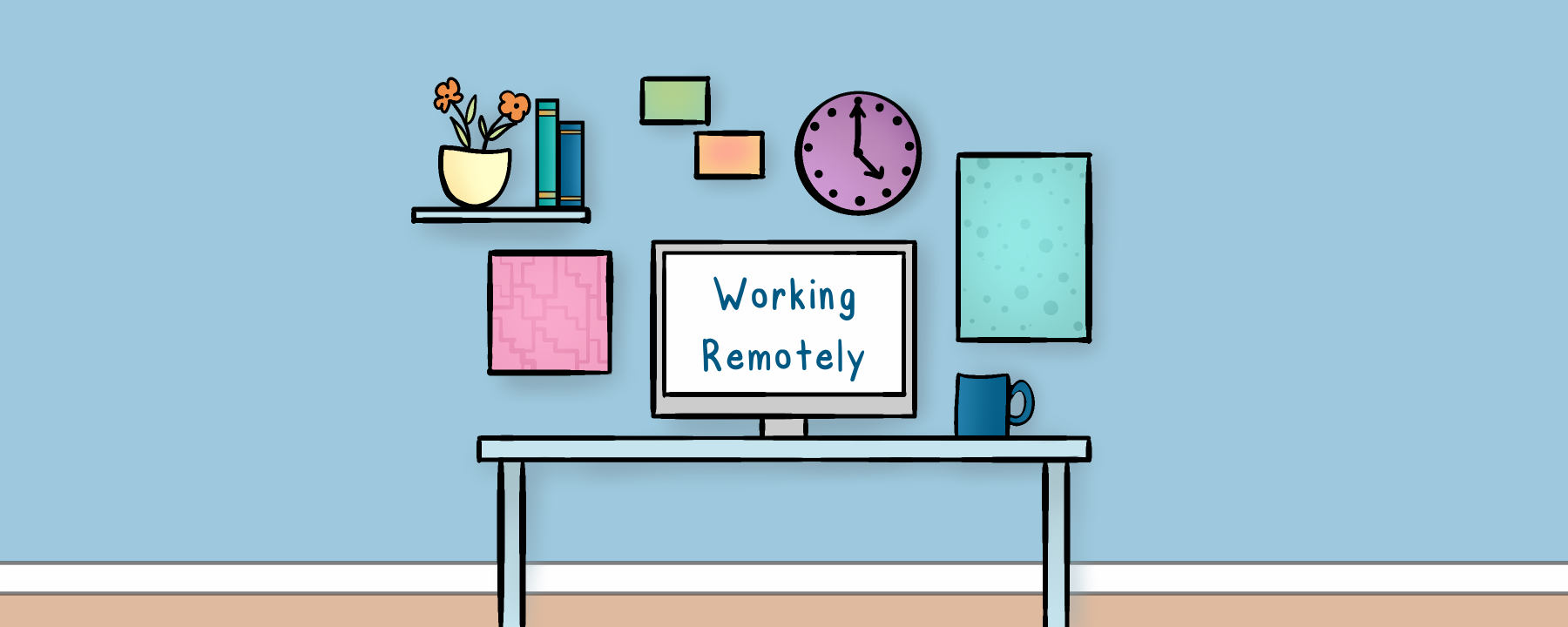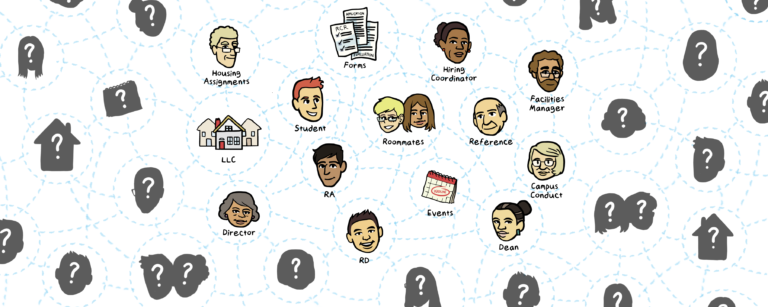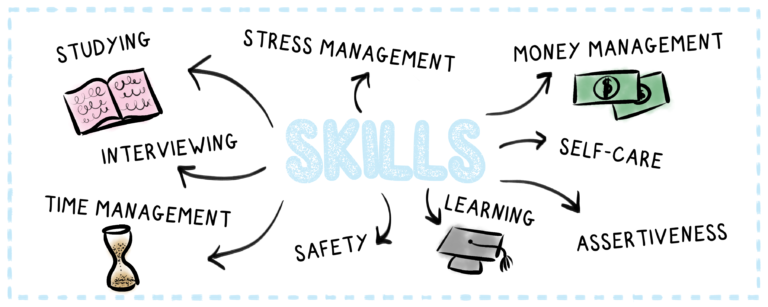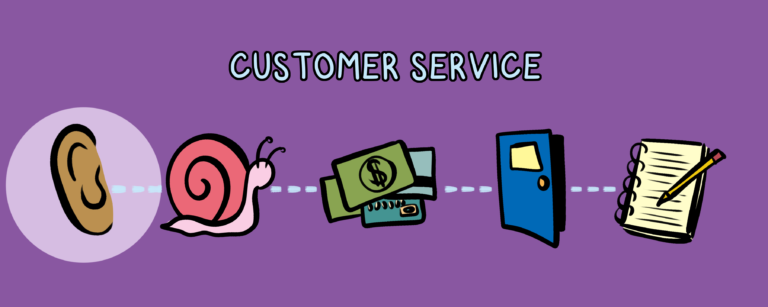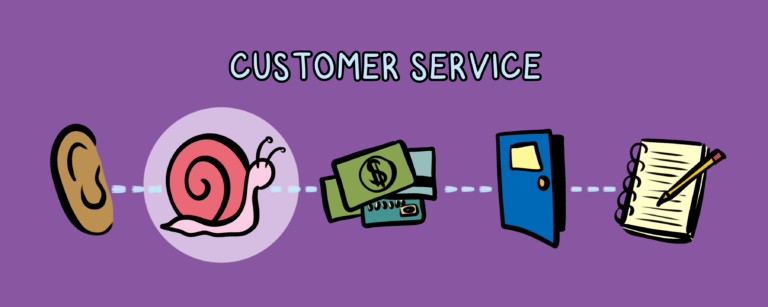It’s a challenging time. With regulations, expectations, and work environments changing daily, it’s hard to find your footing in Residence Life and Housing right now. As always, we care about our community and are looking for ways to assist in this difficult time. We acknowledge that when the directive to work from home comes out, you’re often the ones who that doesn’t apply to. You’re the ones who need to continue to support the students who have nowhere else to go or don’t want to leave. You are the ones who manage the details that matter at this time, and you have the difficult jobs of managing staff who want to work from home but are not able to, or you’re managing staff who are newly working from home. Thank you for your commitment to your role and your care and compassion for your students.
Work From Home
For those of you who are able to work from home, you’ve likely found out that it’s not as glamorous as it sounds. There are distractions present, assumptions about what it will be like and how much you can get done, and guilt about what you should be doing and how you are privileged to have this opportunity. You can’t even hit up a local coffee shop or library right now to avoid the distractions of your domestic world. We don’t pretend to understand what it’s like. However, as former residence life and housing professionals, our Client Success team thought it may be helpful to share some of our tips for working from home when you’re used to a fast-paced, highly interactive environment.
We know you’re busy, so here’s a list you can click through to go to the topics that apply to your needs:
- Be Realistic
- Find Your Space
- Create an Environment
- Stick to a Routine
- It’s Okay to Take Breaks
- Talk to People
- Distractions
- Kids
- Be Kind to Yourself
Be Realistic
It’s important to acknowledge that your work life will not be the same. At home, there are distractions, but there also can be a void of intellectual conversation and dialogue related to your job. It’s important to own your experience and acknowledge that your actual environment may not match your expectations.
Find Your Space
Find a space that can be yours. It may be a seat at the table, a room in the basement, or a spot on your bed. Find that space where you can leave your things and feel confident that things won’t go walking when you need to take a break. If you share your space with others, ensure you set expectations about your belongings and what is acceptable when you’re sitting in your space.
Create an Environment
Create an environment that makes you want to work. Home is full of distractions: that pile of laundry, the sink full of dishes, the paint chip on the wall that you’ve been staring at for years. There are undoubtedly countless numbers of things that could fill your days at home. Make sure you do things that make you want to stay in your space. Light a candle, put on the diffuser, move your speaker so you can blast those ‘90s hits that you’ve always wanted to listen to while you work – you do whatever you want to make that space a place you want to be. You’re working alone, so there is no one to judge you for your decor, scents, or sounds.

“Make a coffee at home and throw it in your travel mug and drink it while working, even though you’re not leaving the house.”
Stick to a Routine
As much as possible, stick to your routine. If you get up, shower, dress, and leave for work, keep that routine! If you grab a coffee from the corner coffee shop every day, make a coffee at home and throw it in your travel mug and drink it while working, even though you’re not leaving the house. It can be helpful to try to replicate your ‘normal’ work day. Dressing for work can help you get into the mindset of being at work. Plus, who doesn’t love changing into sweats when your workday is done?
It’s Okay to Take Breaks
One thing that often happens when people refer to working from home is that they put quotes around the work. “Oh, so you “work” from home. I get it. Let’s go for lunch!” It drives me bonkers. We know you’re working hard and so do the people who matter. Don’t stress about taking a break to make lunch and watch an episode of your fave daytime show or take 30 minutes to grab a workout. Your productivity will improve when you give your mind a break and come back to it.

“Sometimes you just need unstructured time to be working alongside colleagues to find time to have those informal conversations that allow you to feel connected.”
Talk to People
At eRezLife, we use Slack and Zoom to stay connected. It can be very isolating to work alone, and sometimes you just want to feel like you’re not alone. While it’s too early to know, it seems like this may be compounded by social distancing.
We schedule time to just be on a Zoom call with each other; whether it’s during Monday lunch or on a Friday morning, sometimes you just need unstructured time to be working alongside colleagues to find time to have those informal conversations that allow you to feel connected to the people you work with. If that’s not your jam, stay connected through emails, texts, social messaging, carrier pigeon, Hogwarts Owl, or tin can phone. It can be difficult to just reach out and say hi for no reason, but now more than ever, it’s important to stay connected.
Distractions

“The reality is that working from home in real life is full of distractions.”
All of these things sound great in theory, but at this moment in time, many of us are distracted. Daycares and schools are closed, meaning that you’re balancing work and childcare commitments. You may be juggling working in a shared space with a partner who is super chatty. You could be worried about parents or loved ones who are sick or vulnerable. You also may be juggling guilt about being allowed to work from home when many of your colleagues are required to still go to the office. Many people in our society are currently struggling to make ends meet, especially in industries that typically employ hourly employees.
As perfect as the previous recommendations sound, the reality is that working from home in real life is full of distractions. You may need to set up alternative arrangements to make things work. Maybe you start work at 5AM and then take a break from 8AM to noon. Throw on a movie after lunch for the kids and hammer out another hour or two of work. Maybe your partner can handle another couple of hours in the afternoon to give you a few more hours to work. Or maybe you need to do less in order to take care of the things that need your attention more.
Kids
Kids are a different beast. Their needs vary based on age, and they always seem to need you. As someone who has worked at home with kids a couple of times, I can tell you that preparation can go a long way. Prepared lunches save a lot of time and allow you to feed them in your office or workspace. Having a couple of activities planned gives them something new to do (think obstacle course through your hallways or new “how-to-draw” pages printed from the internet). It also helps to sit down and explain what the plan is to your kids. A two-year-old doesn’t seem to understand or appreciate the instructions, but you will notice a difference when you set that out. If possible, include them in your work – ask them for advice on a problem or for their feedback on your project. You may not listen to their advice, but it makes them feel valued. Lastly, take breaks often, and check in with those kids. This time will pass, but as much as it doesn’t seem like it, it is bonus time for you to gain a couple of extra minutes with those annoying little monsters.
Be Kind to Yourself
It’s not easy. Cut yourself some slack, and talk about your experience. Your experience of working from home will never match your experience in the office. It will be different, so what’s most important is embracing the wins and finding ways to mitigate the difficulties.
If you need a connection, reach out to us! We’re happy to chat, and we’re still working with a full team. We’re a community, and we’re looking out for your well-being.
Welcome to the Community. We’re glad you’re here.
